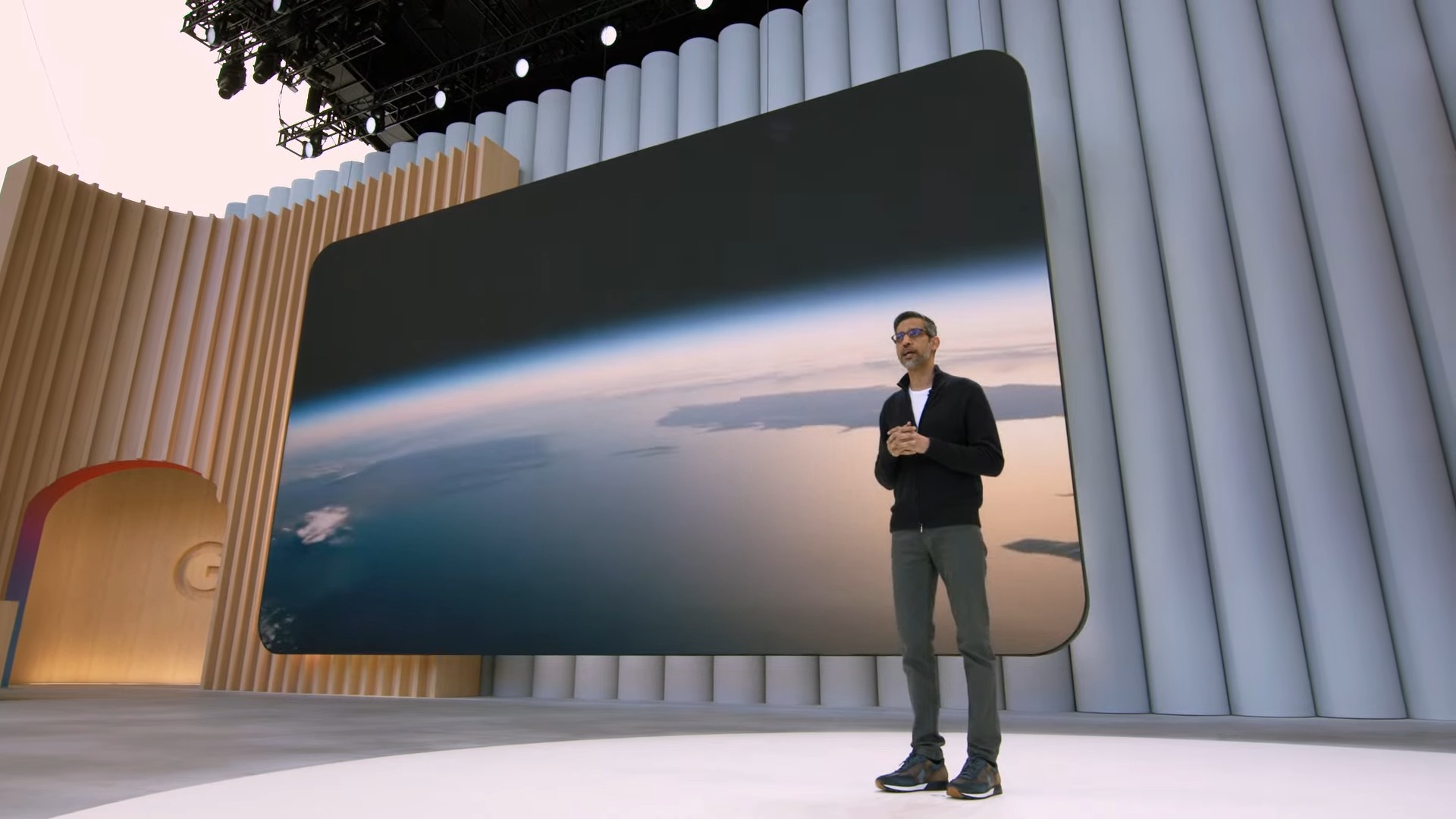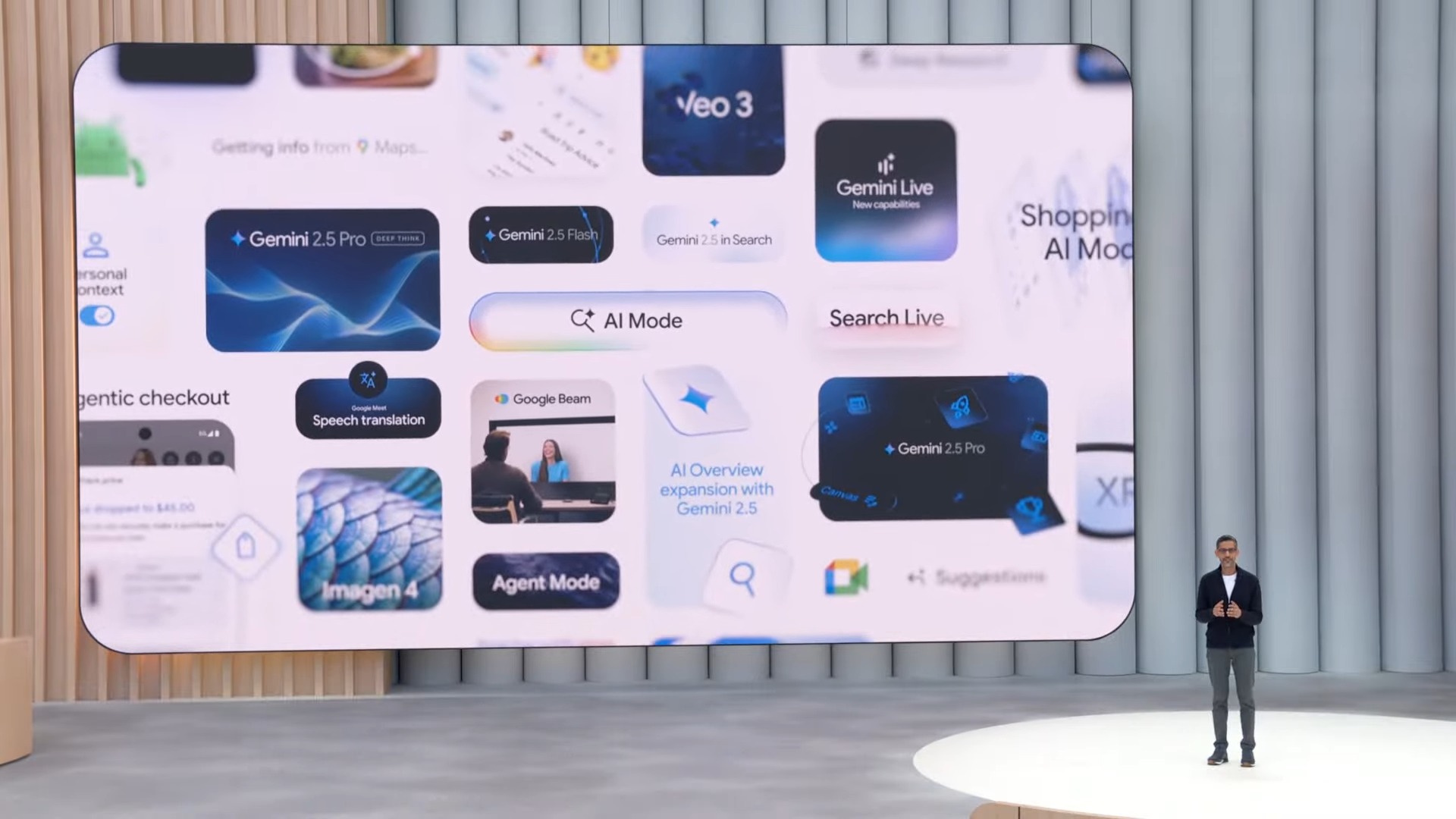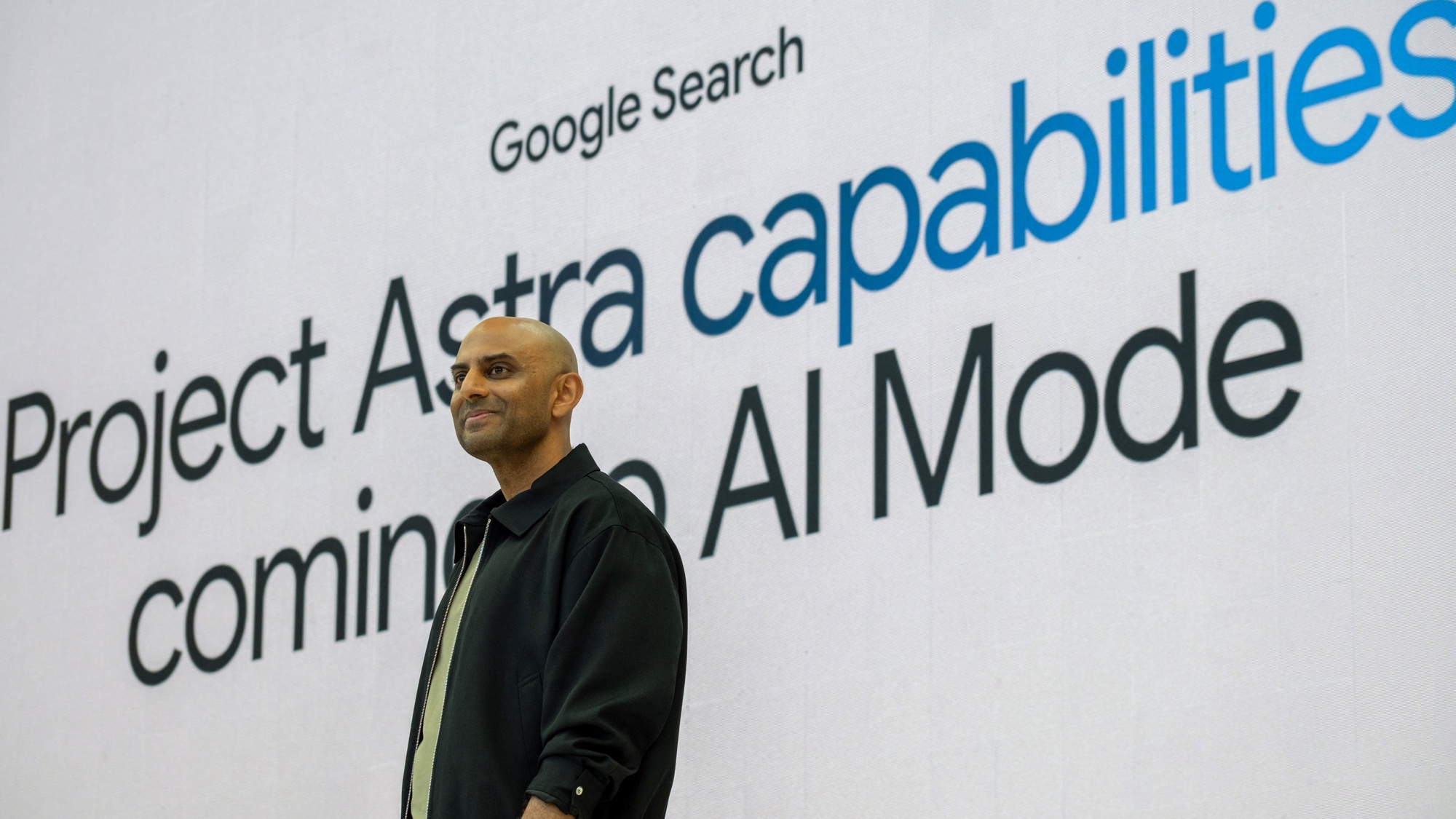Google I/O showed off AI done right — hopefully, Apple was paying attention
It all comes down to Gemini

Here at Tom’s Guide our expert editors are committed to bringing you the best news, reviews and guides to help you stay informed and ahead of the curve!
You are now subscribed
Your newsletter sign-up was successful
Want to add more newsletters?

Daily (Mon-Sun)
Tom's Guide Daily
Sign up to get the latest updates on all of your favorite content! From cutting-edge tech news and the hottest streaming buzz to unbeatable deals on the best products and in-depth reviews, we’ve got you covered.

Weekly on Thursday
Tom's AI Guide
Be AI savvy with your weekly newsletter summing up all the biggest AI news you need to know. Plus, analysis from our AI editor and tips on how to use the latest AI tools!

Weekly on Friday
Tom's iGuide
Unlock the vast world of Apple news straight to your inbox. With coverage on everything from exciting product launches to essential software updates, this is your go-to source for the latest updates on all the best Apple content.

Weekly on Monday
Tom's Streaming Guide
Our weekly newsletter is expertly crafted to immerse you in the world of streaming. Stay updated on the latest releases and our top recommendations across your favorite streaming platforms.
Join the club
Get full access to premium articles, exclusive features and a growing list of member rewards.
As Google CEO Sundar Pichai wrapped up the company's Google I/O 2025 keynote this past week, you could be forgiven if amid the sound of all those AI announcements made during the show, you thought you could hear the faint sound of Apple crying out "uncle."
Apple, which has AI-fueled ambitions of its own, isn't about to throw in the towel on its push to get more Apple Intelligence features into its products. In fact, when Apple convenes its own developers conference next month, AI figures to take up a lot of the focus at WWDC 2025. But as I sat in the Shoreline Amphitheatre last Tuesday, listening to Google outline one new AI initiative after another, I couldn't help but think of Apple — specifically how far behind Google the Cupertino company is with its own AI efforts.
Consider this: The Google I/O keynote lasted 2 hours, and nearly every moment of it focused on something Google was doing involving AI. And not just pie-in-the-sky proclamations, either — Google showed off real features that it's either making available now or rolling out very shortly across a wide swath of its products.
Google's AI focus at I/O was so relentless, it had to move Android announcements to an entirely separate live stream. And it's not like Android is some quaint side business at Google. Apple is not going to have that dilemma at WWDC.
I'm not a believer that technology is a zero-sum game, that just because Google has been rather successful at making AI its primary focus that Apple might as well give up the game with Apple Intelligence. But I don't think its unkind to Apple to describe the initial launch of the company's suite of AI tools as uneven, especially when compared to the more polished offerings that Google has on display. And it's worthwhile to examine why that is.
Why Google is so far ahead

Part of the issue stems from the fact that Google's been at this a while now, whereas Apple got a fairly late start in building out the large language models that power many AI features. It'd be like comparing racers, where one is just getting set at the starting line while the other is about to complete its first lap.
It's also quite clear that while Google has many different parts of its business from search to hardware to productivity tools, AI is now part of most of those efforts. During I/O alone, Google announced a new AI-specific tab for its search engine, unveiled an AI-powered real-time translation feature for its Google Meet video chat software, introduced personalized email replies to Gmail that draw on past messages and made it possible to link up Gemini with all your Google app activity for a more personalized experience using Google's chatbot.
Get instant access to breaking news, the hottest reviews, great deals and helpful tips.
Make no mistake about it — Google is an AI company now, while Apple offers devices and services with some AI features.
I'm also struck by how practical a lot of the advances Google announced this past week are, and I say that as someone who's ambivalent about the tech industry's push to incorporate AI into everything. For example, Google announced a new version of its Veo video generation tool that can now use your text prompt to add sound to the video it's spun into existence. I have reservations about how people might use that capability — or even if they should — but I can certainly see the appeal to someone in the business of mass-producing creative content.
Apple Intelligence features are more geared toward individuals, to be fair, so they're not going to have the impact of something like Google's Veo or the Imagen image generation tool that also saw a new version. Still, you look at things like Image Playground or Genmoji on an iPhone, and apart from whipping up something to amuse your friends in text messages, there doesn't seem to be that larger practical use that Google is focusing on.
Gemini is the star

But I think the starkest AI difference between Apple and Google boils down to the state of their assistants. Efforts to bolster Siri for Apple Intelligence have stalled for Apple, while the Gemini assistant seems to be at the heart of everything, including products that haven't been released yet.
I got a chance to try on a prototype of Google's latest smart glasses built on the Android XR platform. And right now, the primary way you interact with those glasses is by talking to Gemini. The assistant can see the same things you're looking at and even take action on those things — recommending nearby sushi restaurants after I looked at a photo of sushi in a book on Japanse cuisine, for example.
Similarly, Google shared an update on Project Astra, featuring a video of a man repairing a bike with the help of a digital assistant that could look up online repair manuals, identify specific parts in a workshop, and call around to find replacement parts at nearby bike shops. I'm not sure how close the scenario in that video is to being a reality, but it seems a lot further along than the features Apple touted for Siri a year ago, which likely won't arrive until after the iOS 19 launch later this year.
This isn't to suggest that Apple's AI efforts are doomed before they get started. Rather, instead of feeling deflated by all the AI progress Google showed off at I/O, I hope Apple draws some lessons from it.
What Apple needs to do
Obviously, Apple needs to get its Siri house in order. Reportedly, the company is moving away from the hybrid version of its assistant to a more LLM-driven approach — in other words, more chatbot-like. But that's going to take some time. I would hope that Apple uses WWDC 2025 to be honest about when we can expect a Siri reboot, but a Bloomberg report suggests Apple is going to play down that element of its AI efforts. If true, that's a bummer.
More encouraging are some of the rumored Apple Intelligence features that have leaked out. I'm talking about an AI-based health coach with recommendations on improving health or using AI to optimize iPhone battery performance. Those aren't the flashiest implementations of AI, but they could mean everyday improvements in how we use our Apple devices.
But Siri will be the key to Apple's AI revival, just as Gemini is driving things for Google right now. Until Apple can make its own assistant just as reliable, it's always going to be the opening act to Google's more polished AI headliner.
More from Tom's Guide
- Forget Android XR smart glasses — 3 reasons why I’m more excited about the Project Astra upgrades
- Google Gemini can now access your Gmail and Docs — here’s why that matters
- 5 rumored iOS 19 changes I'm looking forward to
Philip Michaels is a Managing Editor at Tom's Guide. He's been covering personal technology since 1999 and was in the building when Steve Jobs showed off the iPhone for the first time. He's been evaluating smartphones since that first iPhone debuted in 2007, and he's been following phone carriers and smartphone plans since 2015. He has strong opinions about Apple, the Oakland Athletics, old movies and proper butchery techniques. Follow him at @PhilipMichaels.
You must confirm your public display name before commenting
Please logout and then login again, you will then be prompted to enter your display name.
 Club Benefits
Club Benefits












